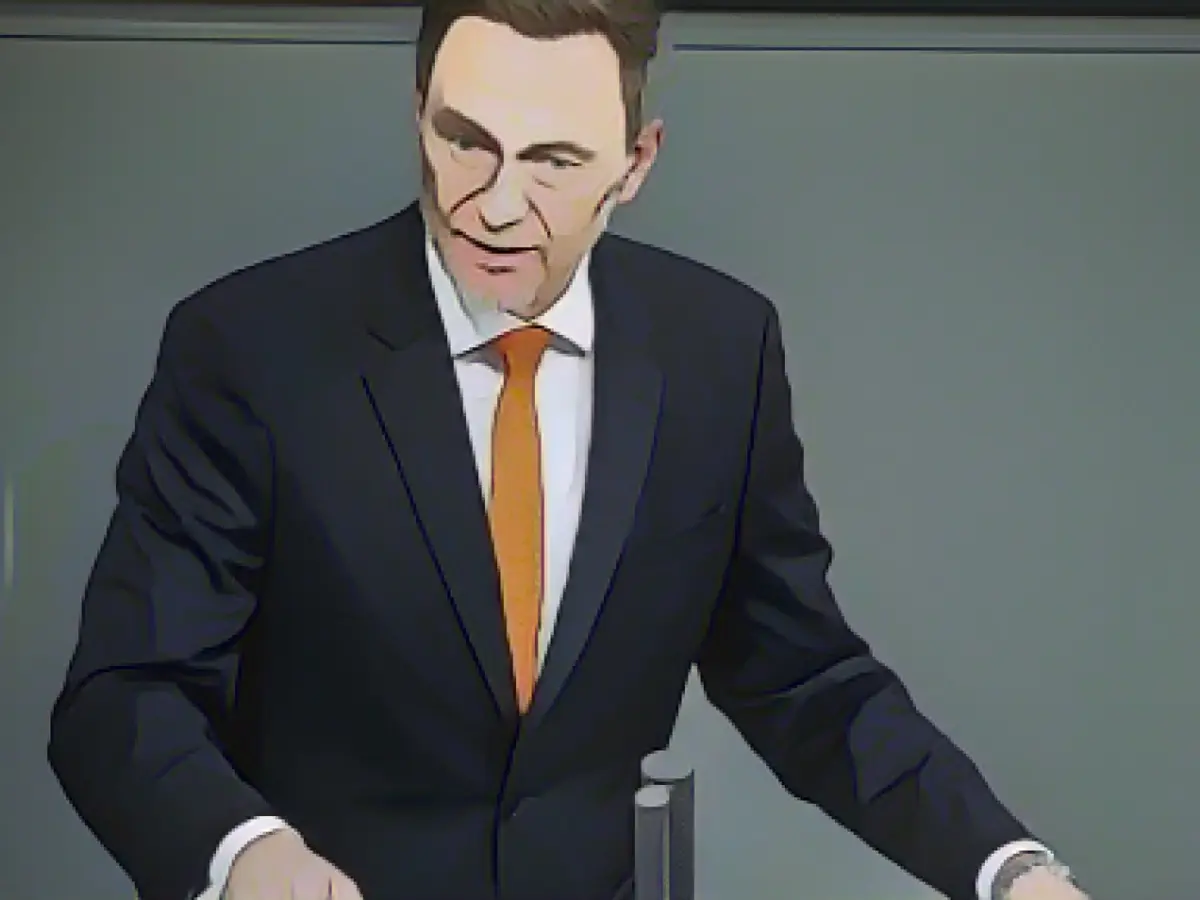Finances - Lindner Proposes Moderate Debt Brake Adjustment
German Finance Minister Christian Lindner (FDP) continues to butt heads with the SPD and Greens over their push for a major overhaul of the debt brake, opting instead for a more limited adjustment before the end of the year. The crux of the disagreement centers around economic fluctuations, as Lindner seeks to align potential debt levels more closely with economic ups and downs.
Certain minister presidents within the CDU/CSU also advocate for broader changes to the debt brake mechanism, aiming to allow for longer-term investments without immediately yielding returns. However, there are opponents within the party, now joined by Schleswig-Holstein's head of government, Daniel Günther, who deem such flexibility a concerning departure from fiscal discipline.
Addressing the Redaktionsnetzwerk Deutschland, Lindner revealed plans to revise the calculation of the so-called economic component in the debt brake, thereby offering leeway during economic downturns. Critics, such as CDU/CSU budget expert Mathias Middelberg, suggest that such a modification would represent a dangerous slippery slope, inadvertently opening the door to future debt accumulation. The finance ministry, in turn, maintains that the review is merely an effort to employ current economic research, and that it will not result in an overall increase of potential debt.
Implementing the Small Reform
SPD parliamentary group deputy leader Achim Post has signaled support for the proposed adjustment, citing its imminent implementation as a top priority. The opposition, however, echoes the calls for a more comprehensive restructuring of the debt brake, arguing that its current iteration does not offer sufficient leeway for investments in areas like climate technology.
Disagreements within the CDU/CSU
Opinions within the CDU/CSU regarding the debt brake are far from unanimous. While Schleswig-Holstein's Minister President Daniel Günther shares the skepticism of Friedrich Merz, both leaders agree that the debt brake plays a vital role in maintaining fiscal discipline. They caution against sacrificing future generations to debt-fueled investments.
Origins of the Debate
The current debate over the debt brake reform can be traced back to the Federal Constitutional Court’s ruling in mid-November, which voided the reallocation of 60 billion euros in the 2021 budget to the climate and transformation fund. The ruling forced the coalition of SPD, Greens, and FDP to agree on alternative financing measures following weeks of contentious negotiations.
[1] Source: [2] Enrichment Data: The CDU/CSU, while retaining its support for the debt brake, remains split on whether or not to modify its provisions. While some leaders, such as Friedrich Merz, express a willingness to explore potential reforms, the party's overall stance emphasizes fiscal discipline and a slow, measured approach to debt accumulation.






